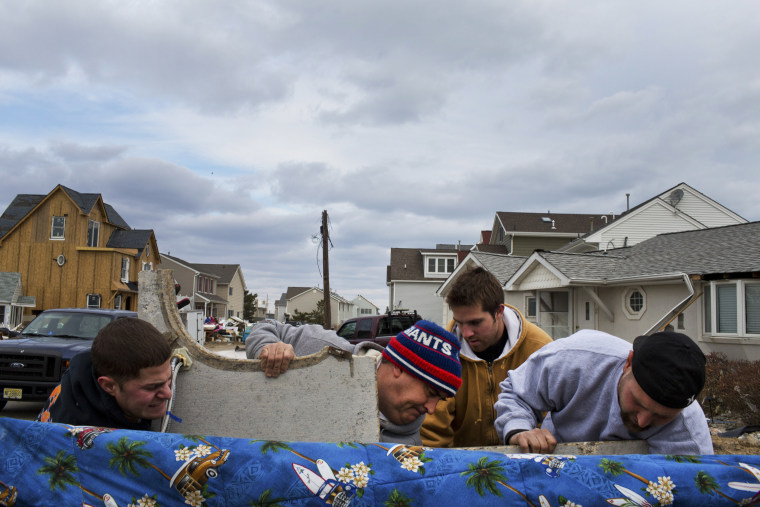A majority of New Jerseyans hardest-hit by Hurricane Sandy are unsatisfied with how Gov. Chris Christie’s administration has handled recovery efforts, according to a new poll by Monmouth University.
Sixty-four percent of New Jersey residents who suffered damage to their primary home and applied for state aid via the “renew Jersey Stronger” program said they are dissatisfied with the state’s recovery efforts so far, while only 36% reported being satisfied.
The gap widens among people who said they are still displaced 15 months after the storm hit, with only 21% saying they are satisfied. Among people who have been able to move back into their homes, and those displaced for less than one month, 49% and 47% reported finding state assistance satisfactory.
The poll’s findings were consistent between state and federal recovery efforts. While 49% said the state has been at least “somewhat helpful,” 53% gave the same response when asked of federal programs including the Federal Emergency Management Agency.
A town hall meeting with Christie was scheduled for last week, but then postponed twice due to weather. Christie’s administration announced Monday that the meeting to discuss plans to distribute the next nearly $1.5 billion installment of Sandy relief funds would be held Thursday at a VFW hall in Port Monmouth.
New Jersey residents sounded off against a panel of administration officials and emergency managers at a public hearing last Wednesday, citing delays in processing aid applications and a lack of communication from state assistance agencies about where they stand in the process.
A handful of residents scolded Christie’s representatives over recent allegations that the governor’s aides inappropriately arranged lane closures on the George Washington Bridge out of apparent political retribution, and over allegations by Hoboken Mayor Dawn Zimmer that Christie aides tried to strong-arm her into supporting a development project by dangling additional Sandy recovery funding for her devastated city. Other residents took issue with the $6 million used to finance a senior center in Belleville, N.J., which according to the Star-Ledger, Christie approved in exchange for an endorsement from that city’s mayor, and $5 million dollars from a fund dedicated to the construction of affordable housing that was used to build a luxury high-rise in New Brunswick. The town suffered little damage from hurricane Sandy, and less than a quarter of the units built classify as “affordable.”
The Republican governor has repeatedly insisted that he had no prior knowledge of the lane closures, and adamantly denies Zimmer's claims.
The Monmouth University poll showed that nearly three-quarters of respondents do not think the state is focused on helping people like them. The universty’s Polling Institute surveyed 854 residents online and by telephone between Sept. 18 and Jan. 8.
An editorial in the Asbury Park Press Tuesday slammed the Christie administration’s recovery efforts, saying “straight answers” are “overdue.”
“Sandy victims are entitled to know what [Christie] is doing to avoid the potholes and pitfalls that characterize the first round of federal relief funds,” the paper’s editorial board wrote.
